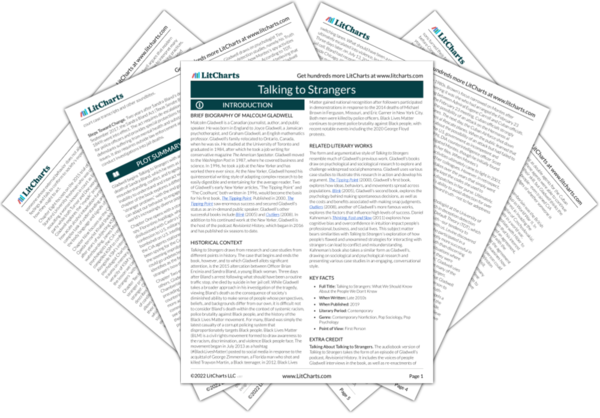Previous
Mismatched
|
Previous
Mismatched
|
Myopia Theory Term Analysis |
Next
Preventative Patrol
|
The lesson of myopia is really very simple. If you want people to be themselves in a social encounter with a stranger—to represent their own desires honestly and clearly—they cannot be blind drunk.

Unlock explanations and citation info for this and every other Talking to Strangers quote.
Plus so much more...
Get LitCharts A+